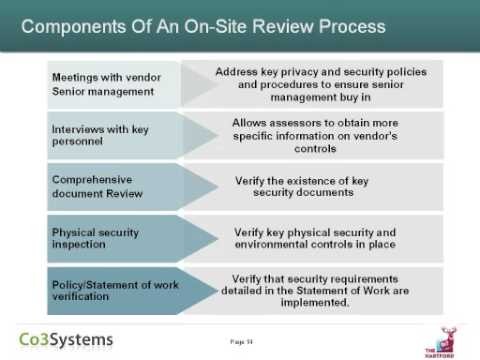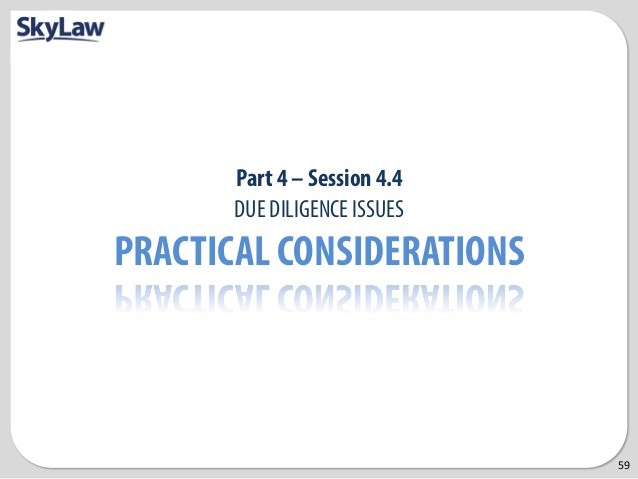Top Ten Considerations in Due Diligence for Developing Countries
Post on: 28 Апрель, 2015 No Comment

Top Ten Considerations in Due Diligence for Developing Countries
Due diligence, simply put, is research which attempts to identify and allow for mitigation of risk, usually in the context of a business transaction. Due diligence, however, is rarely simplistic. This is especially true in developing countries and emerging markets. Issues such as cultural and language barriers, political and market uncertainty, and different legal, financial, and accounting systems contribute to the already complex nature of conducting diligence in foreign jurisdictions. Add in less developed governmental institutions, opaque regulatory practices, and uncertain labor markets and you begin to see the challenges in identifying and mitigating risks in these jurisdictions. An immense challenge in conducting diligence in foreign jurisdictions is the likelihood of receiving inadequate information — even while asking what seem to be the right questions. Lastly, the nature of the transaction, an equity purchase of shares or the purchase of assets only, will impact how liabilities are apportioned under local law, which may differ from a standard Western model. Here are ten factors to consider when performing diligence in developing countries.
1. Retain local legal counsel.
A key starting point is to understand the legal and regulatory environment of the country(ies) in which the target company is located or does business. To assist in this process, it is important to retain a trustworthy local law firm to act as a guide and advisor throughout the process. Local law might imply specific liabilities or obligations which either cannot be avoided, or must be addressed contractually. Local counsel also can assist with diligence on site, where many of the target’s documents might be in a language which the buyer’s deal team cannot read. Although it is important to have a trusted local legal advisor, it is also critical that the attorney selected has significant experience working with multinational corporations, and “speaks the same language” from a risk management and compliance perspective.
2. Determine formation and ownership.
In the U.S. it is usually easy to determine the ownership and legal entity structure of a potential target or counterparty due to the transparency and availability of corporate records. When conducting diligence in multiple jurisdictions, the first step is to determine the nature of the legal entities involved, and more importantly, whether they are properly formed and have complied with required corporate formalities. Basic fundamentals, such as whether an entity is registered to do business in appropriate jurisdictions, cannot be overlooked. Similarly, it is important, especially in an acquisition setting, to know that the individuals or entities which purport to own the company are the true legal owners and have the right to engage in discussions with you. At times, the identity of owners, the existence of voting blocks or shareholder agreements, or the authorization of an individual to speak on behalf of the entity or owners is not clear, and cannot be determined solely by a review of public records.
3. Understand reputation and risk.
Another key area for diligence is reputation, not only of the target entity, but also of its key officers, directors and owners. Generally, this sort of diligence is conducted prior to formal due diligence, and frequently without the knowledge of the target. It is important that this type of diligence be conducted locally, by someone who will have access to local sources and the cultural ability to interpret data found. Sources for reputational data include media reports, public records regarding education and business background, social media, and business associates and acquaintances. A reputation for dishonesty or illegal activity by a key individual, while not probative of the company’s activities, can suggest a higher risk of corruption or illegal activity.
4. Consider the Foreign Corrupt Practices Act and any form of corruption.
Corruption, and for U.S. companies, compliance with the U.S. Foreign Corrupt Practices Act (“FCPA”) . are on everyone’s top ten priority list for due diligence. Although this risk exists in every country, in some regions, the risk is greater than in others. Transparency International. for example, provides an annual index of perceived corruption in various countries around the world. There are “red flags” which should be incorporated into a due diligence program, including financial results that are not consistent with expectations, unusual payment patterns or financial arrangements, a refusal to certify compliance with the FCPA in writing, unusually high commissions received or paid, or a lack of qualifications or resources to engage in the business at issue. That a target maintains more than one set of books, or includes vague accounting entries for items such as “entertainment” should always give cause for concern.
5. Financial Matters – Know the status of the target’s books and records.
The financial status of the target company is often one of the first aspects of due diligence, and for some companies, diligence on other matters is not begun until financial due diligence determines basic viability and value. Accounting and tax, based on both public records and the target’s books and records, are key areas for review. Forensic accountants should evaluate the target’s financials and business controls to determine accuracy, reliability and whether there are any overstatements in assets or revenues or unrecorded or understated expenses. In emerging markets, it is key to understand that a target may have more than one set of financial records, used for various purposes (some of which are legitimate) – diligence needs to see and compare all of them. Further, since some developing countries lack sound accounting and bookkeeping standards, efforts must be made to convert local records into GAAP or the International Financial Reporting Standards (“IFRS”).
6. Know the environmental laws.
Environmental laws and regulations are still developing in many emerging countries; therefore, target companies may not be aware of the full potential for liability. Tort and criminal liability, damages and administrative enforcement vary. Even worse is the lengthy bureaucratic process some countries require for environmental approval. A key principal in conducting environmental due diligence is the identification of material environmental conditions, risks and constraints. The necessity, especially in the developing world, stems from targets that have historically been operating under less stringent regulations and industry standards. The spectrum may also contain nations that have stringent regulatory requirements, but variable enforcement. Enforcement may also change once an international corporation enters the scene.
7. Labor/Employment contracts can vary.

Labor and employment are founded on local law, frequently unique to each country. Issues that should be considered include review of any and all employment contracts or severance agreements, including any agreements, written or implied, with key officers and directors; union status and agreements; pending or anticipated labor or employment litigation; and documents regarding employee benefits, work rules, compensation, and related terms and conditions of employment. Once the structure is known through document review, further diligence must be conducted to ensure that the practice has been consistent with the documents and with local law. As part of this process, key employees and retention risks can be identified.
8. Intellectual Property – What does the target have rights to?
It is critical to obtain information regarding the nature and quality of a target company’s assets to analyze risk associated with the protection of intellectual property. Protection and rights, when it comes to intellectual property, may become problematic especially in an legal and economic environment that offers little or no protection. Importance should be placed on determining whether the target has actual ownership of intellectual property that it claims to own or clear written license rights where third party IP is involved. Consideration should also be given to the strength of local protection of intellectual property if you intend to introduce your company’s IP into the country. In some cases, for example, local law provides that innovations are automatically owned by a licensee, not the licensor as is more typically the contractual norm.
9. Real Estate – Locate the deeds and analyze them closely.
If a target owns or leases any type of real estate, ownership and lease documents should be analyzed, starting with the deed and title status. Preexisting liens and other encumbrances may be problematic depending on the complexity of the nation’s property law. The ease of conducting a title search may vary from country to country. And in some countries, direct ownership of land is not permitted, so it is essential to understand exactly what rights the target has. Lease may include change of control or other restrictive language. Buildings also may not meet certain building codes, may fall outside of the boundaries of the owned or leased property, or may otherwise pose a risk. This is a key area where lax enforcement may change when a target changes ownership, particularly if foreign investment is involved.
10. Know the political risks.
The recent political and civil unrest in the Middle East highlights the political risk of doing business in developing countries. The goal in conducting political risk due diligence is to help determine non-commercial risk that may exist in conducting business. There is an unquestionable nexus that exists between business and politics in every country and even more so in an unstable, developing nation. What is the probability of a disruption of operations due to political forces or events? What position has the ruling party taken with regard to foreign ownership or investment?














